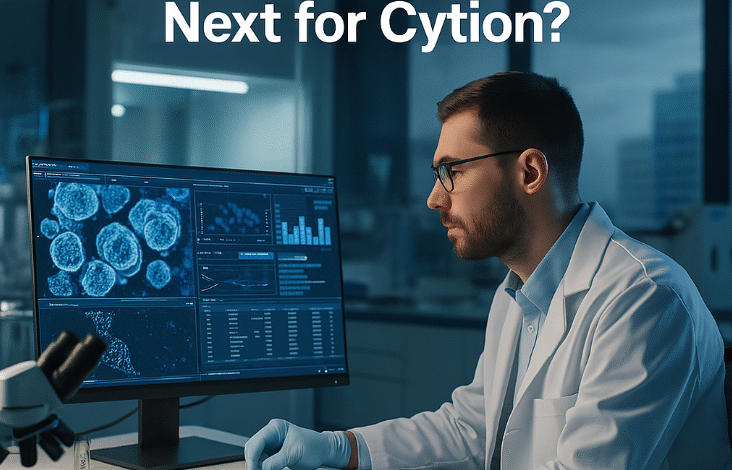The Future of Cell Line Development: What’s Next for Cytion?

Introduction: The Importance of Cell Line Development in Scientific Progress
Cell lines are very important to modern scientific research, and with companies like Cytion leading the way, the future of cell line development is ready for more exciting changes. These standardized biological tools are the foundation for countless breakthroughs in medicine, biotechnology, and pharmaceutical development. Keeping consistent, well-described cells outside the human body has changed how we study disease, test potential medicines, and learn about human biology.
At Cytion, we understand that the reliability and authenticity of cell lines are very important to scientific integrity. As researchers push the boundaries of what’s possible in cellular research, the demand for high-quality, well-characterized cell lines continues to grow. The future of cell lines is not just about keeping what we have but creating new things to meet the changing needs of the scientific community.
The development of specialized cell lines has allowed researchers to model complex diseases, screen potential drug candidates, and study cellular processes with great precision. As we look to the future, several key trends are emerging that promise to transform cell line development even further, with big implications for cancer research, drug discovery, and personalized medicine.
U2OS Cells: A Standard for Cancer Research and Drug Screening
As a human osteosarcoma cell line, U2OS cells have become an industry standard for cancer researchers looking to understand tumor biology and screen potential drug candidates. These cells, taken from a 15-year-old female osteosarcoma patient in 1964, have stood the test of time as one of the most valuable tools in cancer research.
Unique Properties of U2OS Cells
U2OS cells have several characteristics that make them invaluable for research:
- Easy to Culture: These cells are pretty easy to maintain in laboratory conditions, making them accessible for researchers with different levels of experience.
- Genetic Stability: U2OS cells maintain a relatively stable genome compared to many other cancer cell lines, allowing for more consistent experimental results.
- Transfection Efficiency: They readily accept foreign genetic material, making them ideal for studies involving gene manipulation.
- Good Growth Characteristics: U2OS cells display epithelial morphology and stick well to surfaces, making it easier to observe them under microscopes.
At Cytion, our U2OS cells are carefully maintained and authenticated to ensure researchers receive the highest quality cells for their studies. These cells represent an investment in research reliability and reproducibility.
See also: Your Trusted Dentist in Worcester: Providing Exceptional Oral Health
What’s Next in Cell Line Development: Key Trends and Innovations
As technology advances, the next phase of cell line development will likely involve increasingly sophisticated models, such as genetically modified U2OS cells, to mimic more complex diseases with greater precision. The landscape of cell line development is evolving rapidly, driven by technological advancements and the growing demands of precision medicine and personalized therapies.
Advanced Genetic Engineering Techniques
The integration of cutting-edge genetic engineering tools is revolutionizing how we develop and use cell lines:
CRISPR-Cas9 and Beyond: This revolutionary gene-editing technology has made it possible to create precise genetic modifications in cell lines like U2OS cells. Future developments will likely include more refined CRISPR systems with enhanced specificity and efficiency.
Synthetic Biology Approaches: Researchers are increasingly designing cell lines with synthetic genetic circuits that can respond to specific stimuli, opening new possibilities for drug screening and disease modeling.
Gene Expression Control Systems: Advanced systems for controlling gene expression in cell lines are enabling more nuanced studies of gene function and regulation.
Emerging Trend: Multiomics Integration
The future of cell line development will increasingly incorporate multiomics approaches—combining genomics, transcriptomics, proteomics, and metabolomics data to create more comprehensive cellular models. This integration will provide deeper insights into cellular function and disease mechanisms, particularly in complex conditions like cancer.
3D Cell Culture and Organoid Development
Moving beyond traditional 2D cell culture, the field is advancing toward more physiologically relevant models:
3D Spheroid Cultures: U2OS cells grown in three-dimensional structures better mimic the tumor environment, providing more accurate models for drug testing.
Organ-on-a-Chip Technologies: These microfluidic platforms combine different cell types, including U2OS cells, to recreate the complex interactions between tissues and organs.
Adoption Rate of Advanced Cell Line Technologies (2024-2030)
CRISPR Gene Editing
3D Cell Culture
AI-Driven Optimization
Automated Systems
Organoid Development
Source: Industry projections based on current research trends
Cytion’s Role in Shaping the Future of Cell Line Research
Cytion is leading the way in ensuring that researchers have access to cell lines like U2OS cells, which are rigorously tested for quality and reliability, advancing the future of biomedical discovery. As the landscape of cell line research evolves, our commitment to excellence remains unwavering.
Quality Assurance and Authentication
At the core of Cytion’s contribution to cell line research is our rigorous quality control process:
Authentication Protocols: We employ advanced methods to confirm the identity of our cell lines, including short tandem repeat (STR) profiling for human cell lines like U2OS cells.
Contamination Testing: All our cell lines undergo comprehensive testing for mycoplasma, bacteria, yeast, and other potential contaminants.
Genetic Stability Monitoring: We regularly assess the genetic stability of our cell lines to ensure they maintain their characteristic properties across passages.
🧬
Authentication
STR profiling and identity verification ensure correct cell line identification
🔍
Contamination Testing
Comprehensive screening for mycoplasma, bacteria, and other contaminants
📊
Growth Characterization
Detailed documentation of growth rates and morphological features
🧪
Functional Validation
Verification of expected cellular responses and behaviors
Source: Cytion’s Cell Line Quality Assurance Documentation, 2024
The Future of U2OS Cells in Scientific Discoveries
In the coming years, U2OS cells will remain essential to cancer research, particularly in investigating new treatments for osteosarcoma and other hard-to-treat cancers. Their versatility and well-characterized nature position them to play pivotal roles in several emerging research areas.
Personalized Medicine and Cancer Therapeutics
The role of U2OS cells in advancing personalized medicine is expanding:
Companion Diagnostics Development: U2OS cells are being used to develop tests that can predict patient responses to specific cancer treatments.
Target Identification: These cells help researchers identify and validate new molecular targets for cancer therapies.
Resistance Mechanism Studies: By studying how U2OS cells develop resistance to treatments, researchers can develop strategies to overcome therapeutic resistance in patients.
Advanced Disease Modeling
The utility of U2OS cells in modeling complex disease states is being enhanced:
Engineered Disease Models: CRISPR-modified U2OS cells are being developed to more accurately reflect specific genetic alterations found in human cancers.
Tumor Microenvironment Simulation: Co-culture systems incorporating U2OS cells with other cell types are providing insights into how tumors interact with their surrounding environment.
How to Access High-Quality U2OS Cells from Cytion
Researchers can easily access high-quality U2OS cells through Cytion’s user-friendly platform, ensuring reliable and reproducible results for their studies. Our streamlined procurement process is designed to get you the cells you need with minimal delay and maximum confidence in their quality.
Cytion’s U2OS Cell Line Specifications
- Origin: Human osteosarcoma
- Applications: Cancer research, drug development, cellular biology studies
- Quality Assurance: Authenticated, mycoplasma-free, characterized growth profile
Obtaining U2OS cells from Cytion involves a simple process:
Browse Our Catalog: Visit our product page to view detailed information about our U2OS cell line, including specifications and applications.
Place Your Order: Our online ordering system allows for secure, straightforward purchasing with various payment options.
Shipping and Handling: We utilize specialized shipping methods to ensure cells arrive in optimal condition, with temperature monitoring throughout transit.
Conclusion: A Bright Future for Cell Line Research
As the future of cell line development unfolds, Cytion remains dedicated to supporting your research with the highest quality U2OS cells. The journey through the landscape of cell line development reveals a field rich with innovation and poised for transformative advances that will continue to revolutionize biomedical research and therapeutic development.
Throughout this exploration of the future of cell line development, we’ve highlighted several key themes:
The Enduring Value of U2OS Cells: As a human osteosarcoma cell line, U2OS cells continue to serve as a cornerstone in cancer research and drug screening, with their utility only expanding as new technologies emerge.
Technological Advancements: From CRISPR gene editing to 3D culture systems and automation, the tools available to researchers working with cell lines are becoming increasingly sophisticated and powerful.
Quality and Authentication: As research demands increase, the importance of working with well-characterized, authenticated cell lines like those provided by Cytion becomes even more critical.
Explore our catalog and see how we can assist you in advancing your scientific breakthroughs with high-quality cell lines that meet the demands of cutting-edge research.



